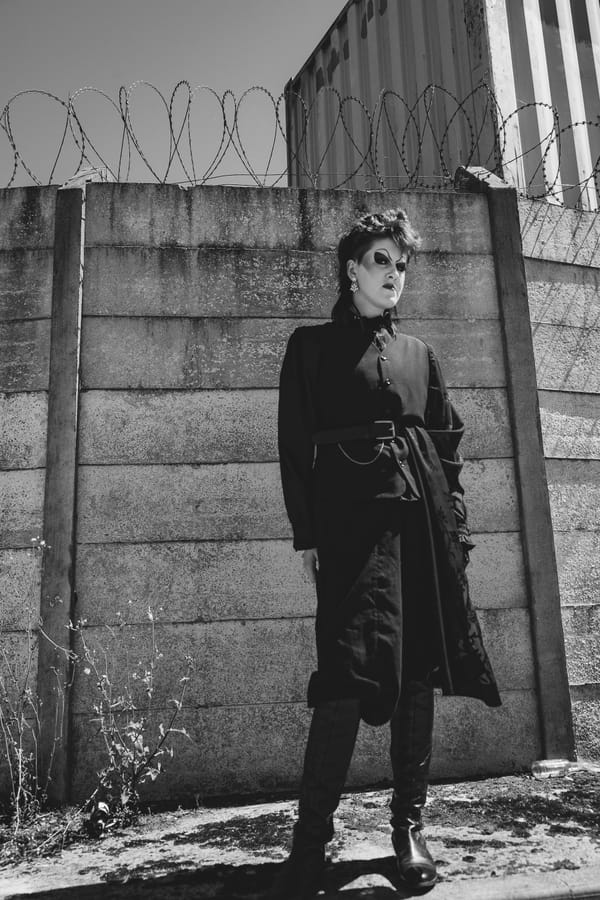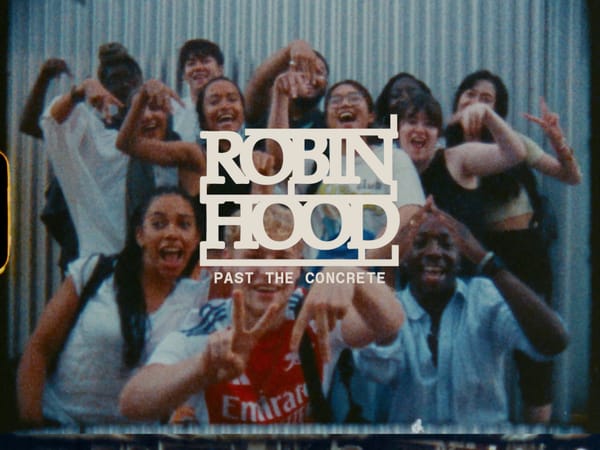Spotlight: Peter Lundhall Ortiz, Invisible Labour
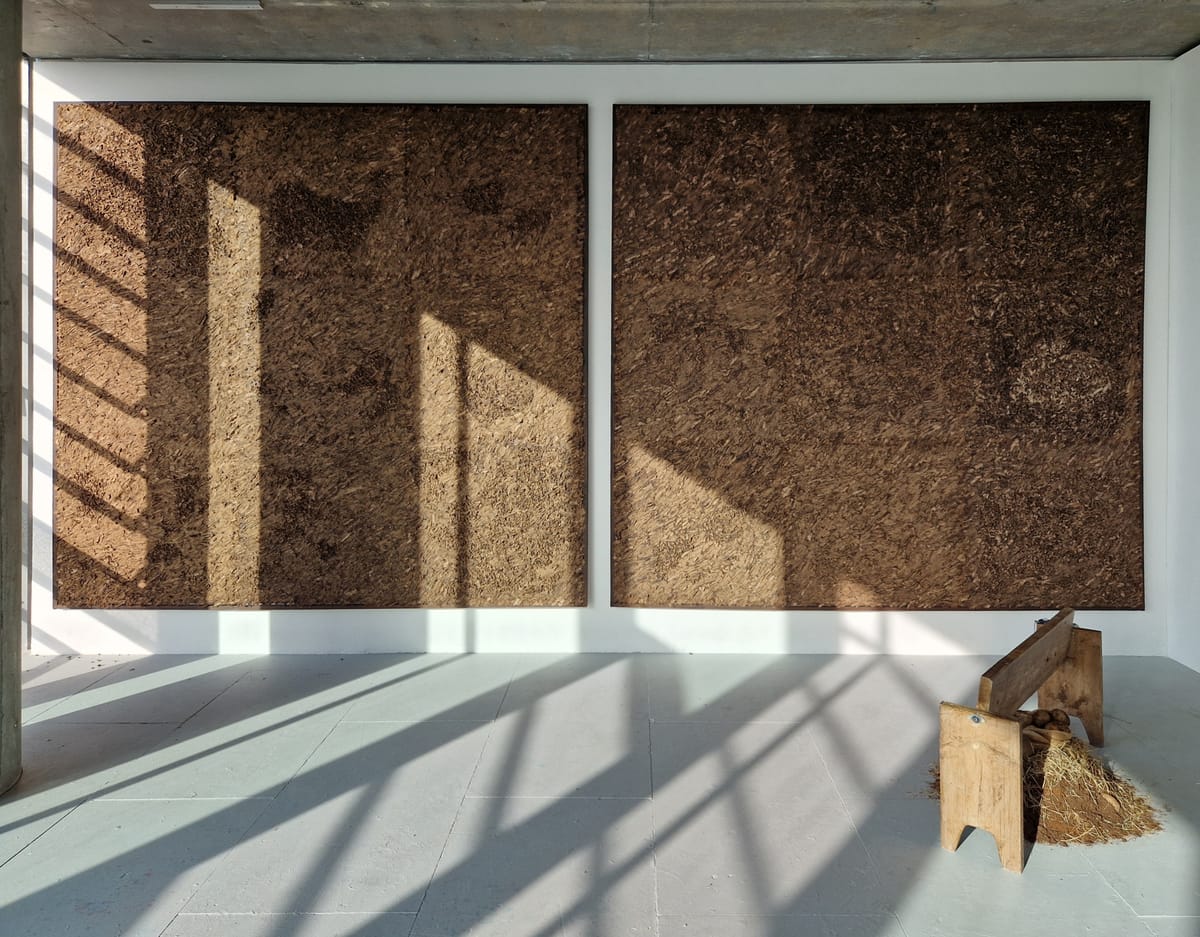
Tell us about this project:
This work is rooted in questions of labour, materiality, and belonging. At its core is a process of carrying a material from one world into another - across time, across contexts, across cultural and professional boundaries. In this movement, the material begins to speak about what it means to live “in-between”: between cultures, between expectations, and between the spaces of labour
and art.
The piece takes shape in two large square panels, each 2.5m x 2.5m, constructed from the peel of 350 kilograms of potatoes - waste material gathered during my work as a chef. This transformation of peelings into a monumental artwork makes visible the connection, and dissonance, between different forms of labour: the physical and repetitive work of the kitchen, and the often rarefied sphere of contemporary art.
Cycles lie at the heart of this project: the cycles of peeling, cooking, discarding, and repeating that structure the kitchen; the cycles of growth, decay, and renewal embedded in the material itself; and the cycles of memory, as my own experiences in kitchens resurface through the tactile presence of potato skin.
I am drawn to processes of alteration and manipulation, to the ways a material can be coaxed into new states of being. Working with an organic substance means contending with its tendency toward change and decay; my task has been to intervene, to shift its trajectory toward permanence. The potato peel passes through cycles of transformation - peeled, dried, rehydrated, and dried once more - until it reveals a final form that bears the memory of each stage. This ritual of labour is as integral to the work as the material itself, a testament to the persistence of process and the poetics embedded in repetition.
In elevating what is often discarded, the work insists on the dignity and creativity present in working-class experience. It reimagines labour not simply as a means of survival, but as a site of transformation, poetics, and belonging - a place where waste becomes material, where repetition becomes ritual, and where the overlooked gains new form and meaning.
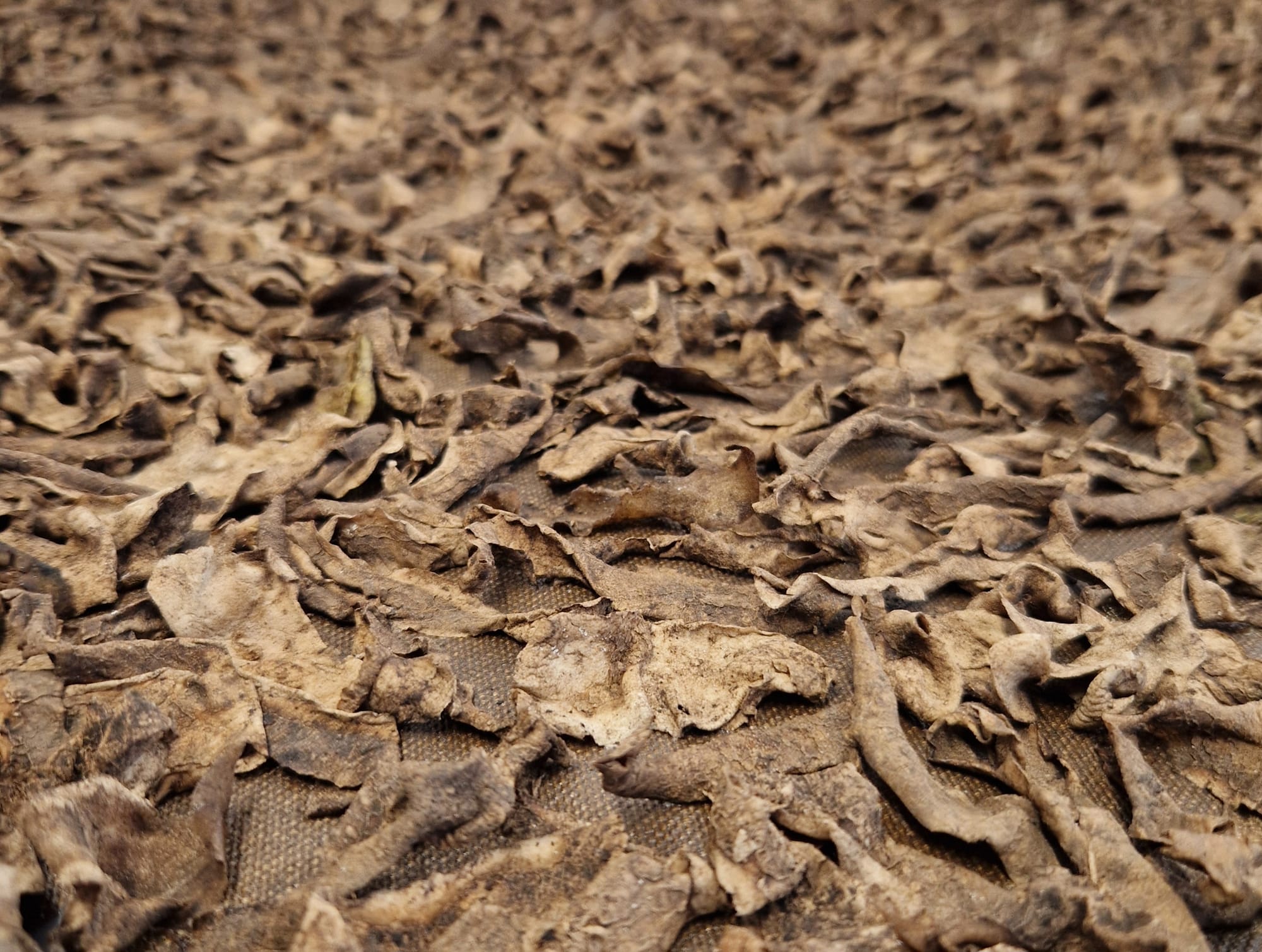
Tell us about your practice:
My practice explores the intersection of nature, labour, class, and belonging, weaving these concerns into worlds where material process meets poetic transformation. At its centre is a recognition of labour - often repetitive, invisible, or undervalued - as a condition that shapes not only bodies and environments, but also the meanings we attach to them. I treat labour not simply as a means to an end, but as a generative act in itself: a site where creativity, endurance, and
transformation continually unfold.
Organic matter is a recurring focus within my work, carrying with it cycles of decay and renewal that mirror the lived realities of working-class experience. By intervening in these cycles - slowing, redirecting, or reconfiguring them - I aim to draw attention to the poetics that emerge from repetition, care, and persistence.
I am especially drawn to underworlds and metaphysical spaces, where what lies beneath or beyond the surface becomes a metaphor for the unseen: the hidden struggles, quiet resilience, and contested forms of value that underpin everyday life. Through these explorations, my practice seeks to carve out spaces of belonging not defined by fixed categories, but by acts of transformation, reimagining, and the stubborn persistence of material memory.
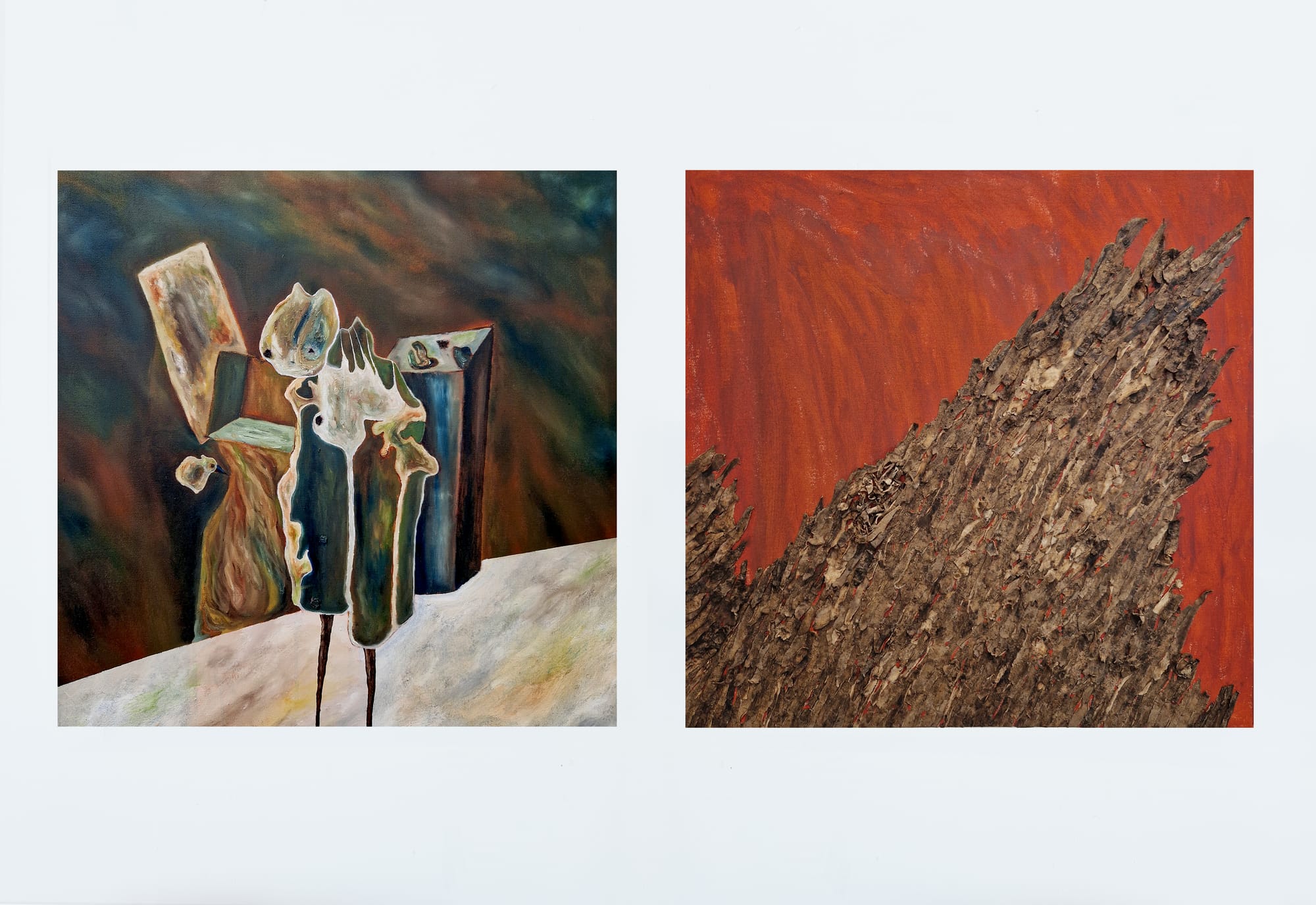
Peter Lundhall Ortiz (b. 1992) is a Swedish artist based in London. He was born in Kramfors, a small village in northern Sweden, to an Ecuadorian mother and a Swedish father. This dual cultural background plays a central role in his artistic practice, shaping his exploration of identity, heritage, and hybridity.
Before pursuing art, Peter worked for over a decade as a chef in professional kitchens across Stockholm and London. The repetitive, physical, and collaborative nature of this work continues to inform his practice, inspiring an engagement with themes of endurance, transformation, and the unseen value of labour.
In 2019, he relocated to London to pursue a career in the arts—an ambition that had long felt out of reach. He completed a Foundation Diploma in Art, Design and Media Practice at the London College of Contemporary Arts in 2021, and recently earned his BA in Fine Art from Goldsmiths, University of London, where his work culminated in the 2025 degree show in June.



